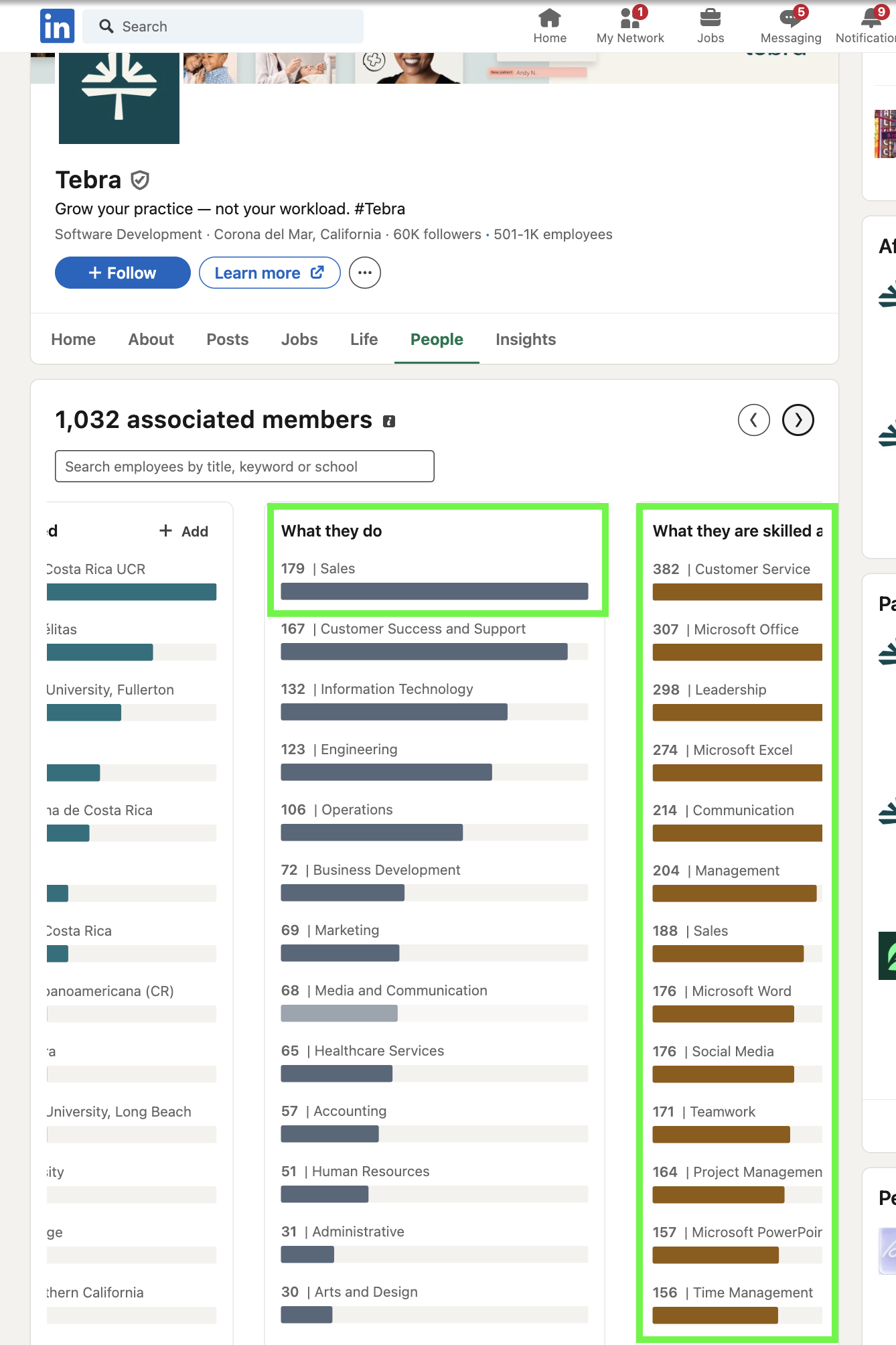Why You Should Never Let Tebra Control Your Online Presence: A Serious Warning to Medical Practices
Written by: Aaron Michael Buch
Before we save you tens of thousands of dollars, here are 10 quick points that should make you want to read more.
- Tebra owns everything they build for you—leave, and you lose it all.
- Their top priority is sales, not supporting your growth.
- Support is outsourced and often lacks U.S. healthcare expertise.
- Engineering-heavy teams focus on software, not real marketing.
- Minimal marketing resources—one marketer per hundreds of clients.
- Template-based designs lead to generic, unremarkable websites.
- Limited custom branding leaves your practice looking like the rest.
- Lacks true customization for unique patient demographics.
- Inconsistent marketing results with spread-thin resources.
- Function over patient engagement—software trumps user experience.
In today’s digital age, your practice’s online presence is more important than ever. Patients look to the internet first to research healthcare providers, read reviews, and even book appointments. Choosing the right partner to manage this presence can make or break your practice’s reputation and patient inflow. Tebra, formerly known as PatientPop, presents itself as a healthcare marketing solution, but as a software-first company, there are significant drawbacks to consider before entrusting them with your digital footprint.
Here’s why:
Top 10 Reasons to Avoid Tebra (Formerly PatientPop)
- Temporary Ownership of Assets: Tebra owns everything they create for you. When you stop paying, everything they built for you disappears, leaving you with no website, content, or online presence to fall back on.
- Sales-Driven Culture: Tebra’s largest team is their sales department. Their main priority is generating revenue, not necessarily ensuring client satisfaction or delivering strategic marketing results.
- Outsourced Support: Much of their support is handled remotely, often by individuals based in Costa Rica who may not have in-depth knowledge of the U.S. healthcare industry or the specific needs of medical practices.
- Engineering-Focused Company: With more employees in engineering than in marketing or design, Tebra is built to support their software product, not to provide tailored marketing strategies.
- Minimal Marketing Resources: Only 69 employees are listed in marketing roles, spread across tens of thousands of client accounts, leaving each marketing professional stretched too thin to provide individualized attention.
- Template-Based Website Design: Tebra relies on template designs, which means your practice’s website won’t stand out from the competition or connect authentically with patients in your local community.
- Generic Branding and Visuals: With just 30 employees in arts and design, Tebra doesn’t prioritize creating unique, brand-specific visuals that are essential for building a recognizable and memorable online presence.
- Lack of Customization: Medical practices have unique needs based on patient demographics and services. Tebra’s high-volume approach limits their ability to tailor solutions to your specific practice.
- Inconsistent Marketing Outcomes: Due to the large number of clients and limited resources, Tebra often delivers mixed results in SEO, online visibility, and local competition strategies, leading to an underwhelming online presence.
- Focus on Software, Not Patient Engagement: Their engineering-heavy team means functionality takes precedence over user experience and patient engagement, which are crucial for attracting and retaining patients.
1. Temporary Ownership of Your Online Assets
One of the biggest issues with Tebra is their “rent, don’t own” approach to digital assets. Run! When you work with them, any website, content, or digital presence they create for you is owned by them, not you. When you inevitably decide to leave—often due to dissatisfaction—you lose everything they built. It’s wiped clean, leaving you with nothing to fall back on, no continuity, and no assets that belong to your practice. In contrast, a real healthcare marketing agency builds assets that you own 100%, in perpetuity, giving you complete control and long-term value without restrictive agreements. We know this, because we have inherited the aftermath of working with Tebra dozens of times this year alone, and the clients come with no assets. Usually, just a domain.
2. Sales, Sales, and More Sales
Tebra’s primary focus isn’t marketing or even customer success—it’s sales. According to their own data, the largest department in their organization is sales, with 179 employees dedicated to it. This emphasis reveals where their priorities lie: generating new business rather than genuinely helping existing clients succeed. Customer Success and Support comes second, which signals that you’ll likely be spending a lot of time with support, dealing with issues rather than seeing proactive, strategic marketing support.
Moreover, much of their support staff operates remotely, with a large portion based in Costa Rica. While this isn’t necessarily a drawback, it can create challenges when those team members may lack nuanced knowledge of the U.S. healthcare landscape or the specific needs of medical practices.
3. Engineering-Heavy Teams: Software Over Strategy
As an EHR-centric company, Tebra employs an engineering-heavy team to keep their software functional and scalable. This means they have more people working on the tech side—IT and engineering—than on strategy, content, and local SEO. For a company supposedly helping medical practices grow, the fact that engineering and operations take priority over marketing speaks volumes. A healthcare marketing agency, on the other hand, focuses on building a strategy tailored specifically to your practice’s patient demographics, unique selling points, and local competition.
With just 69 individuals in marketing roles and 30 in arts and design spread across their vast client base, your practice could easily become another template in a sea of thousands of generic websites. Think about this: if Tebra is managing 42,000+ websites, each marketer would need to handle hundreds of sites—an impossible load to give your practice the individual attention it deserves.
4. Template-Based Designs
One-size-fits-all solutions may work for software, but for your online presence, they fall short. Large companies like Tebra rely heavily on templated websites to serve their massive client base. While templates allow for scalability, they often lack the unique branding, localized appeal, and personal touch that healthcare practices need to stand out. Patients in your community deserve a website that feels tailored to their needs, not something that looks like every other practice’s site.
5. Over-Reliance on Engineers Rather Than Designers
When engineering drives the design, aesthetics, and user experience often suffer. Engineers are brilliant at making systems functional, but they aren’t usually focused on the visual or emotional experience of users. For healthcare providers, this is a critical point. Patients need an engaging, welcoming website that reflects the quality of care they’ll receive at your practice. Unfortunately, Tebra’s focus on engineering-heavy teams may result in a website that works but doesn’t connect or resonate with your patient base.
6. Insufficient Customization for Your Practice’s Unique Needs
Healthcare marketing is not one-size-fits-all. Each practice has unique strengths, patient demographics, and specialties. Larger providers, like Tebra, may struggle to deliver the level of customization required to target your specific patient base. A smaller, specialized healthcare marketing agency can tailor strategies that reflect your practice’s personality, local competition, and patient expectations—factors that are critical for growing your patient base and maintaining high satisfaction.
7. Mixed Marketing Results
At a high-volume agency like Tebra, resources are spread thin across thousands of clients. This can lead to inconsistent outcomes in terms of SEO, patient engagement, and visibility. Your practice deserves a marketing strategy that reflects local competition, meets specific patient needs, and adapts to changes in the healthcare landscape. With Tebra, you may find that your online presence lacks the custom approach necessary to truly thrive.
8. Over-Reliance on Engineering, Neglecting Patient Engagement
With an engineering-heavy team, the focus leans towards technical functionality rather than design aesthetics or patient engagement, which are critical for healthcare websites. The result is often a functional but uninspired online presence that doesn’t capture patient attention or build trust. Patient engagement should be at the heart of healthcare marketing, something a software-first company may overlook.
Choose a Real Healthcare Marketing Partner
Entrusting your practice’s online presence to a software company like Tebra can lead to unsatisfactory results and costly setbacks. When their focus is on sales and software rather than marketing and patient engagement, the results can be generic, impersonal, and ineffective.
In contrast, a real healthcare marketing agency works as an extension of your practice. They build assets that belong to you, focusing on long-term growth, patient engagement, and a deep understanding of healthcare and patient dynamics. They prioritize unique, brand-specific designs that resonate with your patients, crafting marketing strategies that address the specific needs of your practice and local competition.
Instead of renting your brand’s digital presence, choose a partner who will help you build and own it in perpetuity. For a healthcare provider, this means a website, social media presence, and digital marketing strategy that genuinely reflects your brand and attracts the right patients to your practice. Avoid the one-size-fits-all approach of software companies and invest in a marketing partner who understands what it takes to help your practice grow sustainably.




